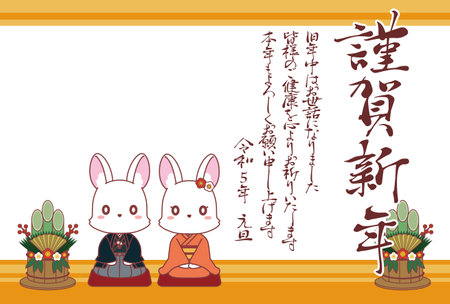Introduction: Weaving Wellbeing into British Gardens
In the heart of every British garden lies a unique sense of tranquillity—one that speaks not only to the eye, but also to the soul. Today, more gardeners are turning to the wisdom of both Eastern and Western traditions, seeking ways to blend beauty with wellbeing in their outdoor spaces. The ancient Chinese practice of Feng Shui teaches us that a harmonious flow of energy, or Qi, is essential for creating an environment that nurtures balance and positive vibes. By incorporating traditional and native herbs into our gardens, we can enhance this vital energy and foster a sense of harmony right at home. This approach invites us to view our gardens as dynamic sanctuaries where East meets West: where fragrant lavender borders mingle with sage, rosemary, and other time-honoured botanicals celebrated both in British folklore and Feng Shui philosophy. Whether you’re cultivating a compact city patio or sprawling country grounds, weaving these herbs into your design not only enriches sensory delight but also encourages healthful energies to circulate through your green retreat. In doing so, we honour centuries-old gardening traditions while crafting contemporary sanctuaries infused with restorative power—a beautiful synergy between aesthetic pleasure and purposeful planting.
2. Feng Shui Fundamentals for the Thoughtful Gardener
When curating a harmonious British garden, understanding the foundational principles of Feng Shui is essential. Rooted in the ancient Chinese philosophy of living in balance with nature, Feng Shui offers timeless wisdom that translates beautifully to the art of outdoor space design—especially when woven with local traditions and native botanicals.
The Core Principles of Feng Shui in Outdoor Spaces
At its heart, Feng Shui revolves around optimising the flow of Qi—life energy—by harnessing natural elements and spatial arrangements. In a British context, this means creating gardens that feel tranquil yet alive, and which honour both tradition and the unique qualities of our climate and landscape.
Key Elements to Consider:
| Feng Shui Principle | Garden Application |
|---|---|
| Balance (Yin & Yang) | Blend shaded corners (Yin) with sunlit areas (Yang) using native shrubs and herbs for contrast. |
| Five Elements (Wood, Fire, Earth, Metal, Water) | Incorporate materials such as wooden benches, stone paths, metal ornaments, water features, and vibrant planting to represent each element. |
| Bagua Map | Use the Bagua grid to assign garden zones: health area for medicinal herbs, wealth corner for lush growth, etc. |
| Qi Flow | Create winding paths and soft-edged borders to encourage gentle movement of energy through your space. |
The Relevance of Native and Traditional Herbs
Selecting herbs familiar to British soil—such as lavender, mint, rosemary, and sage—not only pays homage to local heritage but also grounds your garden in authenticity. These plants support biodiversity and thrive with minimal intervention, allowing natural Qi to flourish. Pairing them with traditional Feng Shui layouts creates a seamless blend between East Asian philosophy and British gardening sensibilities.
A thoughtfully designed garden honours seasonality, invites wildlife, and fosters human well-being—all while enhancing positive Qi. By applying core Feng Shui principles within the unique context of a British outdoor space, you cultivate a sanctuary where harmony and vitality blossom side by side.
![]()
3. Essential British and Traditional Herbs for Harmonious Qi
Blending classic British charm with time-honoured traditions, a harmonious garden can be curated by selecting herbs that both celebrate local heritage and honour the principles of Feng Shui. By introducing a thoughtful selection of native and traditional herbs, you can create a space where natural energy flows freely, cultivating a sense of balance, wellbeing, and beauty.
Rosemary: Resilience and Clarity
Rosemary, a staple in British gardens for centuries, is valued for its aromatic foliage and robust nature. In Feng Shui practice, rosemary is believed to clear stagnant energy and promote mental clarity. Its upright growth habit and subtle blue flowers bring structure and tranquillity to any outdoor sanctuary.
Lavender: Calming Energy
The soothing scent of lavender is synonymous with the English countryside. Lavender not only attracts beneficial pollinators but also helps dispel negativity from your garden. Planted near seating areas or entrances, it ushers in calmness, making it perfect for spaces designed to relax and recharge.
Sage: Wisdom and Protection
Sage holds a special place in both British herb lore and Asian healing traditions. Revered for its cleansing qualities, sage is often used to purify spaces—physically and energetically. Its silvery leaves add visual interest while reinforcing a sense of protection within your garden layout.
Mint: Freshness and Vitality
Vigorous and versatile, mint embodies vitality in both flavour and Feng Shui energy. Its refreshing aroma enlivens any corner it inhabits. Mint thrives best in contained beds or pots—encouraging healthy boundaries while infusing the air with an invigorating presence.
Chives: Subtle Strength
Chives are beloved for their delicate purple blooms and subtle onion flavour, making them a culinary favourite across Britain. In the context of harmonious Qi, chives represent gentle strength; their slender green stems symbolise flexibility as well as resilience against adversity.
Creating Balance Through Planting
Selecting these essential herbs—rooted in both British tradition and wider cultural significance—allows you to harmonise the energies within your garden. Thoughtful placement according to sunlight, wind direction, and the flow of visitors will help maximise the positive influence these plants offer, fostering a landscape that is both uplifting and serene.
4. Designing with Intention: Placing Herbs for Optimum Energy Flow
Creating a harmonious herb garden is more than simply planting your favourite rosemary or mint; it’s about purposefully arranging each element to encourage positive Qi (energy) to flow seamlessly through your outdoor space. When you blend traditional Feng Shui principles with the natural beauty of British gardens, you create a sanctuary that uplifts both spirit and senses.
Spatial Arrangement: Guiding the Qi
Think of your garden as a series of gentle pathways for energy. Curved beds, rather than harsh straight lines, allow Qi to meander, softening the atmosphere and inviting tranquillity. Position pathways and seating areas thoughtfully, ensuring they don’t block main entry points or the natural journey of light and wind.
Plant Placement: Finding Each Herb’s Purpose
Every herb carries its own energetic signature and role within the garden. In British tradition, native species like chives, sage, and thyme blend beautifully with classics such as lavender and bay. Use the table below as a guide for positioning some key herbs to amplify harmony in line with Feng Shui:
| Herb | Ideal Position | Feng Shui Benefit |
|---|---|---|
| Lavender | Near entrances or along paths | Cleanses energy, invites calm |
| Sage | South-facing beds | Promotes clarity and protection |
| Chives | Corners of garden beds | Dissipates stagnant energy |
| Bay Laurel | As a feature plant near seating areas | Encourages prosperity and wisdom |
| Mint | Contained pots near water features | Refreshes and invigorates Qi |
| Thyme | Edging pathways or raised beds | Grounds energy, provides subtle movement |
Layering: Building Depth and Flow
The artful layering of plants—tall at the back, medium in the centre, ground covers at the front—mirrors nature’s rhythm and enhances spatial harmony. Layering not only maximises sunlight but also creates visual intrigue and softens transitions between different zones. For an English touch, intersperse traditional cottage garden blooms like foxgloves or alliums among your herbs for added textural interest.
Tuning into the Five Elements
A balanced garden incorporates all five elements central to Feng Shui: wood (herbs), fire (red blooms or copper accents), earth (terracotta pots), metal (ornamental features), and water (birdbaths or small ponds). Positioning these elements thoughtfully throughout your herb garden will foster balance and continuous renewal.
Tips for Enhancing Positive Energy:
- Avoid cluttered planting—give each herb space to breathe.
- Create focal points with aromatic plants near resting spots.
- Use stone edging or low hedges to define boundaries without creating barriers.
- Place fragrant herbs where breezes will carry their scent indoors.
- Cultivate symmetry where possible, but let nature’s irregular beauty shine through.
Your intention shapes not just how your garden looks, but how it feels—a thoughtfully designed herb plot becomes a living expression of harmony, blending British gardening heritage with timeless Feng Shui wisdom.
5. Seasonal Rituals and Care: Nurturing Harmony Through the Year
British gardens have long been shaped by the rhythm of the seasons, each bringing its own unique energy and opportunities for cultivating harmony. In Feng Shui practice, honouring these natural cycles is key to sustaining positive Qi and fostering wellbeing in your outdoor space. As spring unfolds, sow seeds of native herbs such as mint, chamomile, or woodruff—plants that not only thrive in our climate but also carry centuries of traditional use for cleansing and renewal. Summer is a time for tending and mindful harvesting; gather herbs like rosemary and lavender in the morning when their oils are most potent, infusing your garden with vibrant life while respecting the land’s natural abundance.
Autumn calls for gratitude and reflection. It is customary in many British communities to celebrate the harvest with gatherings or simple rituals—perhaps sharing fresh herbal teas or crafting small wreaths from sage and thyme to hang near entrances, inviting protection and calm as daylight wanes. Winter, though quieter, offers a chance to restore both soil and spirit. Mulch your beds with composted leaves and dried herb cuttings, returning nutrients to the earth and setting intentions for the coming year. These seasonal rituals not only enhance Feng Shui Qi, but also deepen your connection to local traditions and the landscape itself.
Community engagement weaves an additional layer of harmony throughout the year. Joining local gardening clubs or participating in herb swaps fosters a sense of shared stewardship over the land, echoing age-old customs found across Britain’s villages and towns. By nurturing herbs according to seasonal rhythms—and embracing communal practices—you cultivate more than just plants; you nurture a living tapestry of wellness, balance, and belonging that echoes through every corner of your garden.
6. Infusing British Spirit: Everyday Uses for Herbal Harmony
Embracing the abundant gifts of your garden’s herbs is a quintessentially British way to connect with both tradition and tranquillity. Integrating traditional and native herbs into daily routines not only enhances Feng Shui Qi but also brings a sense of ritual, comfort, and wellbeing to your home life.
The Art of the British Herbal Brew
Begin with the timeless ritual of tea—a cornerstone of British culture. Infuse your afternoon with fresh mint, lemon balm, or chamomile harvested from your own borders. These soothing herbal teas calm the mind, cleanse the palate, and invite gentle positive energy into every sip, transforming a simple cup into a moment of mindful serenity.
Culinary Rituals Rooted in Tradition
Let your kitchen become an extension of your harmonious garden. Sprinkle finely chopped chives or parsley over new potatoes, blend sage into a classic stuffing, or create a vibrant rosemary-infused roast. Each dish becomes more than sustenance; it’s a celebration of local bounty and the living energy of your garden, enhancing both flavour and Feng Shui flow at the family table.
Time-Honoured Herbal Remedies
Draw on generations of wisdom by crafting gentle remedies from lavender, thyme, or elderflower. Create soothing balms for minor aches or concoct restorative syrups for winter colds—simple acts that connect you to ancestral knowledge while nurturing body and spirit with every use.
Mindful Moments Outdoors
Finally, cherish quiet pauses amidst your herb beds. Whether meditating beside fragrant sage or simply tending to thriving fennel with bare hands, these mindful interactions with nature deepen your connection to your outdoor sanctuary. Such moments not only revitalise your personal Qi but also weave harmony through the very fabric of everyday British life.

